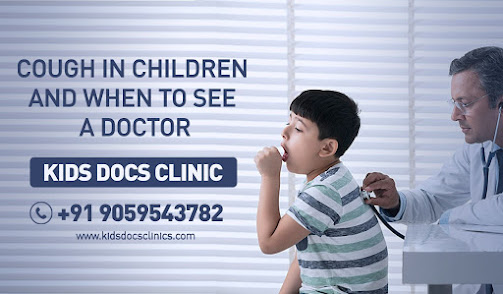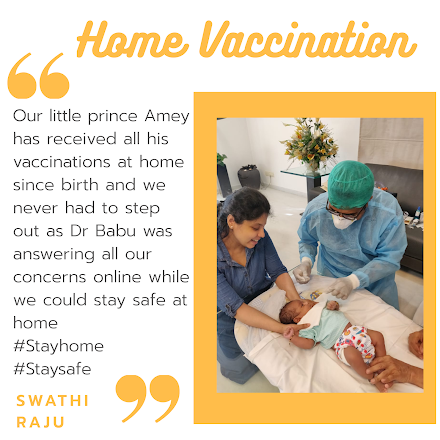COUGH IN CHILDREN AND WHEN TO SEE A DOCTOR
Colds and cough are common in children. A regular cough can last up to ten to twelve days. Most coughs are due to common viruses.
Exposure to germs and fighting helps children develop their immune systems. Unless the cough in children is extreme or comes with other serious symptoms (see our list below), the best solution is to offer home comfort measures.
If you want to identify the cough symptoms and learn when your child needs to see a pediatrician, then this blog is for you.
Types of Cough in Children
- Dry Cough: Dry cough in children occurs due to upper respiratory tract infections such as dry, cutting cough, cold and flu.
- Wet Cough: If your child has a wet cough, it is likely due to fluid secretions and mucus in the lower respiratory tract (windpipe and lungs). Infections and asthma are the common causes of wet cough.
- Whooping Cough: With symptoms similar to the common cold, whooping cough gets progressively worse with deep and rapid bouts of coughing. After coughing, the child breathes deeply, sometimes making a “whooping cough” sound.
- Croup Cough: Croup is a hard, dry, barking cough that can sound like a seal. Croup cough in children is often caused by a viral infection. A child with croup may make a high-pitched sound known as a stridor while breathing.
How to Help Toddler Cough?
- Provide enough fluids to loosen mucus and prevent dehydration.
- Hot soups and broths can help relieve chest irritation and pain.
- Warm water can also ease coughing in toddlers.
- Giving half or a teaspoon (2 to 5 ml) of honey can help loosen mucus and ease cough. Do not give honey to babies younger than one year old as it can cause infant botulism.
- Humid air reduces cough as it contains water vapours. Use a cool steam humidifier in the room or hang a wet cloth to humidify the air.
- Breathing in cold air can relieve croup cough. Let your child breathe cold air near the window or a fan. You can also take them outside.
- Avoid physical activity until the cough has passed.
- Avoid giving children younger than four certain foods such as nuts, popcorn, and pieces of hard food because they can breathe into the airway when swallowing.
When to seek a Pediatrician?
If you’ve been treating your child’s cough at home for a few days and it’s getting worse, visit your pediatrician’s office. Asthma and allergies can cause chronic cough and need to be treated by a doctor. If you think your child’s cough is due to asthma or allergies, make an appointment.
Signs that your child needs to see a doctor include:
If you see any of the below mention signs in your child, seek a pediatric consultation.
- Cough that lasts more than 10 days
- Constant fever over 100.4˚F for more than 3 days
- Shortness of breath
- Chest pain
- Trouble eating or drinking
- Muscles that pull around the neck or rib cage while breathing
- Pulling into the ears, which may indicate an ear infection
A child specialist will observe your child’s breathing and, in some cases, may use x-rays to make a diagnosis.
See a doctor immediately if your child:
- Looks lethargic or very sick
- Shows signs of dehydration
- Breathing fast or unable to breathe
- Develops a blue colour on the lips, nails, or skin, which is a sign of lack of oxygen
Timely treatment can prevent complications in cough and related illness.
Visit us at Kids Docs Speciality Clinics for the best possible comprehensive pediatric services for children in Hyderabad. With the best pediatrician in Hyderabad, we offer a wide range of specialized healthcare for newborns and children up to the age of eighteen.
For more information,
Call us on +91 9059543782
Write to us at drbabumedehal@gmail.com
Visit Us at: Pillar number 1484, 8-3-318/10/2 Adj. Radha Nursing Home, Yousufguda Main Rd, Opp. Allahabad Bank, Hyderabad, Telangana 500073




Thanks for sharing this useful information.
ReplyDeleteBest Multispecialty Clinic In Hyderabad